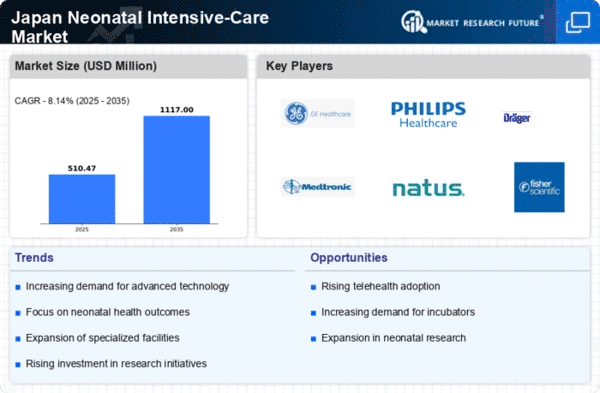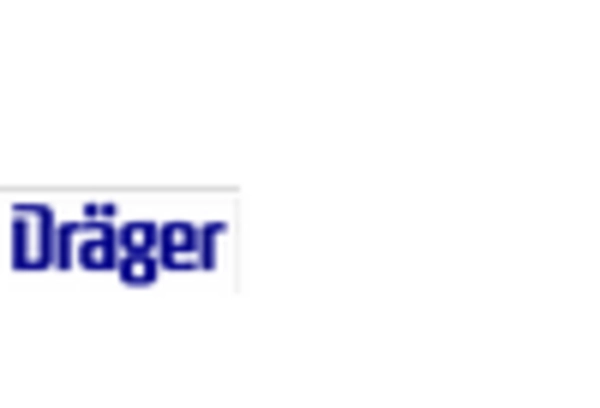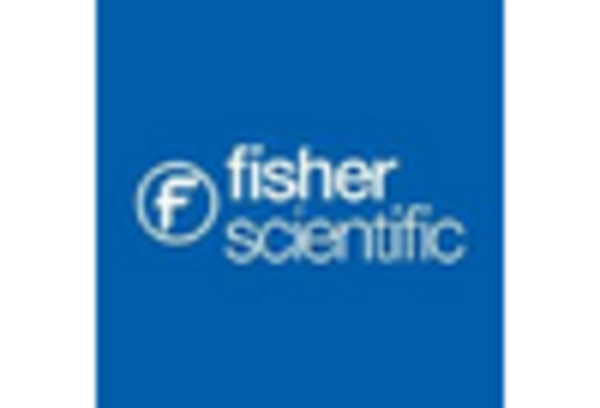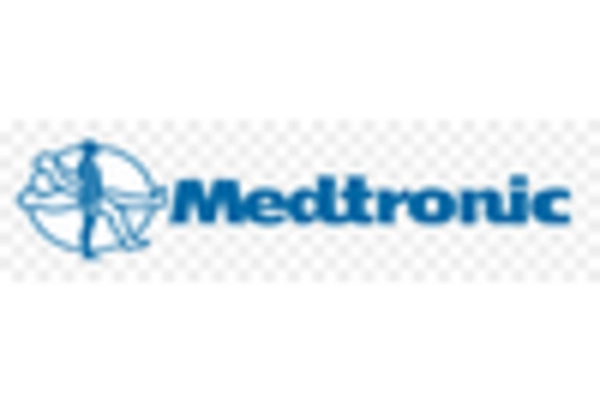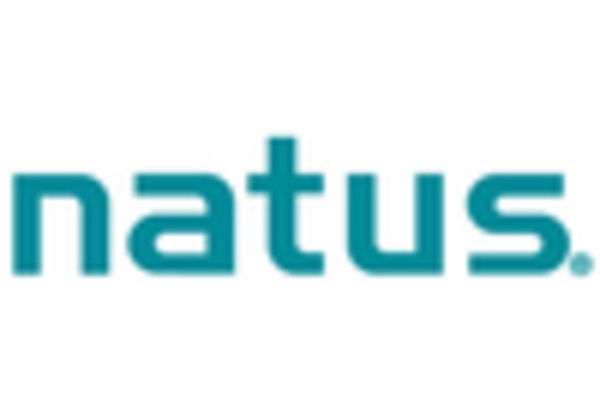Government Initiatives and Funding
Government initiatives aimed at improving maternal and child health are significantly impacting the neonatal intensive-care market in Japan. The Ministry of Health, Labour and Welfare has implemented various programs to enhance neonatal care, including funding for NICUs and training for healthcare professionals. In recent years, the government has allocated substantial budgets, amounting to billions of yen, to support these initiatives. This financial backing is likely to facilitate the adoption of advanced technologies and improve the overall quality of care provided in NICUs. Consequently, the neonatal intensive-care market is expected to benefit from these efforts, leading to better health outcomes for newborns and increased demand for specialized services.
Growing Awareness of Neonatal Health
There is a growing awareness of neonatal health issues among the Japanese population, which is positively influencing the neonatal intensive-care market. Public health campaigns and educational programs have increased knowledge about the importance of early intervention and specialized care for newborns. This heightened awareness is likely to lead to more parents seeking advanced neonatal care services, thereby driving demand for NICUs. Additionally, healthcare providers are responding to this trend by enhancing their service offerings and investing in state-of-the-art facilities. As a result, the neonatal intensive-care market is expected to expand, reflecting the increasing prioritization of neonatal health in Japan.
Rising Prevalence of Premature Births
The neonatal intensive-care market in Japan is experiencing growth due to the increasing prevalence of premature births. Recent statistics indicate that approximately 8% of all live births in Japan are preterm, necessitating specialized care. This trend is likely to drive demand for neonatal intensive-care units (NICUs) and associated medical technologies. As healthcare providers strive to improve outcomes for these vulnerable infants, investments in advanced monitoring and treatment equipment are expected to rise. The neonatal intensive-care market is thus positioned to expand as hospitals enhance their capabilities to cater to this demographic, ensuring that they can provide the necessary interventions to support the health of premature infants.
Technological Integration in Healthcare
The integration of advanced technologies in healthcare is transforming the neonatal intensive-care market in Japan. Innovations such as telemedicine, artificial intelligence, and advanced imaging techniques are being increasingly utilized in NICUs. These technologies enhance monitoring capabilities and improve diagnostic accuracy, which is crucial for the timely intervention of critically ill newborns. The market is projected to grow as hospitals adopt these technologies to streamline operations and improve patient outcomes. Furthermore, the increasing reliance on data analytics for decision-making in neonatal care suggests a shift towards more personalized treatment plans, thereby driving the demand for sophisticated medical equipment and services in the neonatal intensive-care market.
Aging Population and Maternal Age Trends
The demographic shift towards an aging population in Japan is contributing to changes in maternal age, which in turn affects the neonatal intensive-care market. Women are increasingly delaying childbirth, leading to a higher incidence of complications during pregnancy and delivery. This trend results in a greater need for specialized neonatal care, as older mothers are more likely to give birth to preterm or low-birth-weight infants. Consequently, the neonatal intensive-care market is likely to see increased demand for services and technologies that cater to these high-risk pregnancies. As healthcare systems adapt to these demographic changes, investments in NICUs and related services are expected to rise, further driving market growth.


